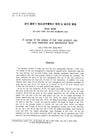Central hair loss in African American women: Incidence and potential risk factors
February 2011
in “Journal of The American Academy of Dermatology”

TLDR Some African American women's central scalp hair loss is linked to genetics and past fungal scalp infections, with more research needed on other causes.
In a study of 529 African American women, researchers found a 5.6% incidence of extensive central scalp hair loss, also known as central centrifugal cicatricial alopecia (CCCA). The study did not find significant associations between hair loss and the use of hair relaxers, hot combs, or other hair care practices, nor with bacterial infections, reactions to hair care products, seborrheic dermatitis, eczema, thyroid disease, autoimmune or hormonal disorders. However, there was a significant association between hair loss and a history of tinea capitis, as well as a strong correlation between the severity of hair loss in subjects and that of their mothers, suggesting a hereditary component. The pattern of hair loss observed was similar to that seen in Caucasian women with female pattern hair loss (FPHL), but less extensive. The study also noted a high incidence of clinical signs of hyperandrogenism in participants, indicating a potential area for further investigation. The study concluded that genetics and other factors may play a role in CCCA, and that further research is needed to fully understand causality and treatment options. The study was limited by the lack of scalp biopsy correlation and the inability to determine the safety or risk of specific hair care practices.
View this study on jaad.org →
Cited in this study

research Central scalp alopecia photographic scale in AfricanAmerican women
A scale was made to measure hair loss severity in African American women.

research Central centrifugal cicatricial alopecia
CCCA is a scarring hair loss condition mainly in African descent women, possibly caused by genetics and hairstyling, treated with gentle hair care and medications.

research Female Pattern Hair Loss and its Relationship to Permanent/Cicatricial Alopecia: A New Perspective
Some women with common hair loss may develop permanent hair loss.

research Validity of self reported male balding patterns in epidemiological studies
Men can report their own balding patterns well enough for large health studies.

research Revised 2003 consensus on diagnostic criteria and long-term health risks related to polycystic ovary syndrome
The 2003 consensus updated PCOS diagnosis criteria and highlighted increased risks of diabetes and heart disease for those affected.
Related

research Sensitive scalp: An epidemiologic study in patients with hair loss
Many people with hair loss, especially those with telogen effluvium and alopecia areata, often have a sensitive scalp.

research A clinico-epidemiological study of scalp hair loss in children (0–18 years) in Kota Region, South-East Rajasthan
About 12% of children in Kota, Rajasthan, experience hair loss, mainly due to fungal infections, with early treatment advised to prevent worsening.

research Psoriatic Alopecia in a Patient with Systemic Lupus Erythematosus
A woman with lupus improved significantly from scalp hair loss after treatment, highlighting the need to identify psoriatic alopecia in lupus patients to avoid permanent hair loss.

research Hair loss in children: Common and uncommon causes; clinical and epidemiological study in Jordan
The most common causes of hair loss in Jordanian children are fungal infections, autoimmune hair loss, and hair shedding after fever, with zinc deficiency also being a notable cause.

research Alopecia areata: Clinical presentation, diagnosis, and unusual cases
Alopecia areata is a type of hair loss that can lead to complete baldness, often associated with other autoimmune conditions, and half of the cases may see hair return within a year.

research Topical and intralesional therapies for alopecia areata
No treatments fully cure or prevent alopecia areata; some help but have side effects or need more research.

research A survey of the status of hair loss product use, hair loss treatment and satisfaction level
Most people with hair loss haven't used treatment products and are only somewhat satisfied with their options, highlighting a need for better management programs and marketing.
research [Status of scalp hair and therapy of alopecia in men in Switzerland].
In Switzerland, 43% of men experience hair loss, and many switch to Propecia for treatment.